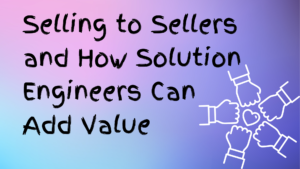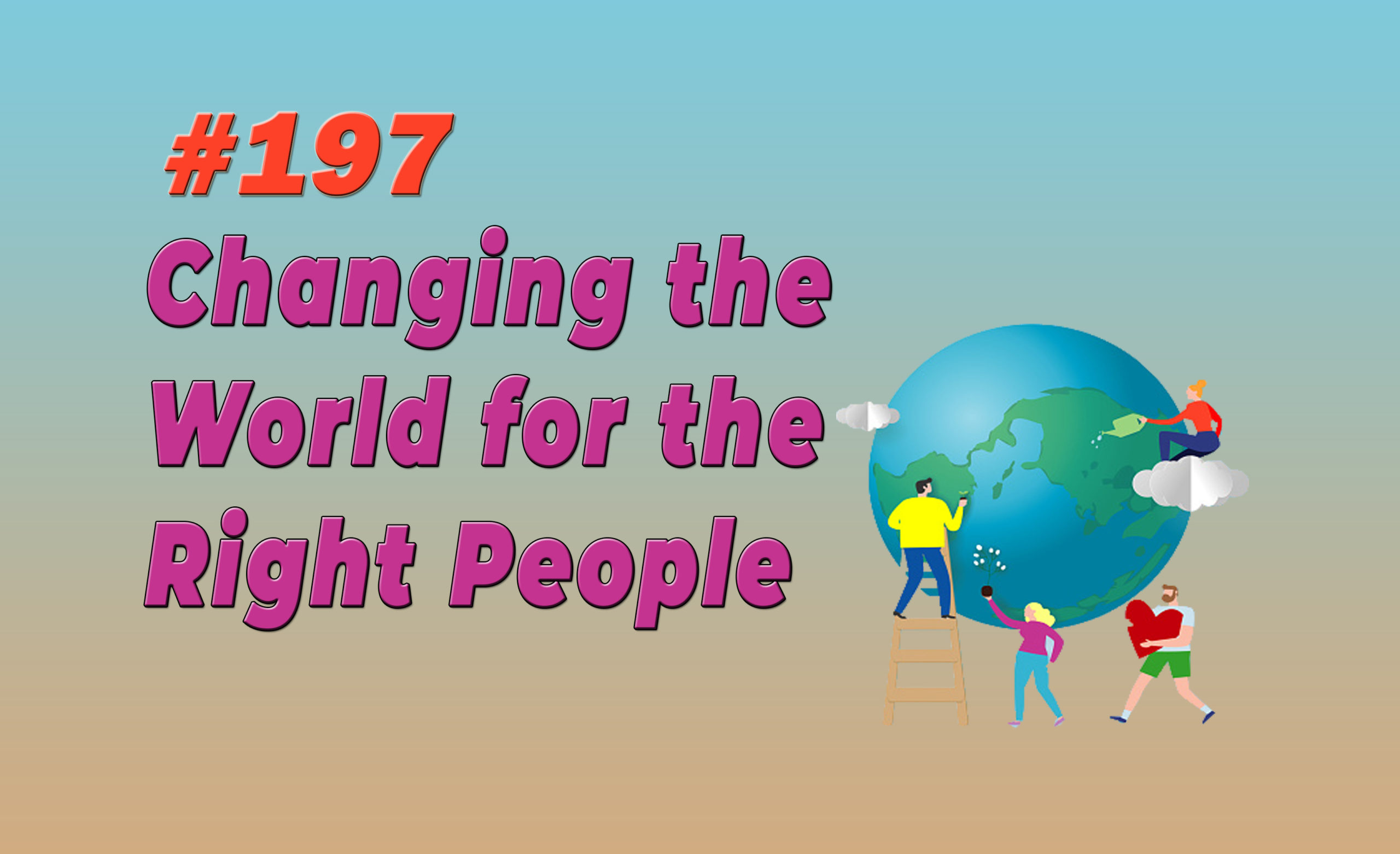
Blog
Notes:
What is your favorite thing about being a sales engineer? Perhaps it’s interacting with customers, understanding their challenges, addressing their pain points, or diving straight into the solutions they need? Or perhaps it’s partnering up with your account executives and closing deals. Whatever it is, you simply can’t deny that it’s the best job most people have ever heard of. In this episode, get to know why one director of solution engineering’s favorite thing about his job is helping other people realize that being an SE is the best job in the world. If you’ve got friends who may be interested in Sales Engineering or know a brand new SE, share this episode with them. It’ll make them think.
Desire: If you’re looking for an exciting career in sales engineering, then this podcast is for you! Paul provides valuable insights and tips that will help you succeed in your career. So whether you’re just starting or looking to take your skills to the next level, this podcast has something for everyone.
Action: Listen to the We The Sales Engineers podcast today!
Paul Urfi is the Director of Solutions Engineering at Armory.io, an enterprise software company commercializing the open-source continuous delivery platform, Spinnaker. Armory enables enterprises to unlock innovation by reliably deploying software at scale, leveraging our enterprise-grade, multi-cloud continuous delivery platform, and 24/7 expert support.
In this episode, learn how Paul went from SE to SE leader to now Director of Solutions Engineering, why he is so passionate about building great presales teams, the important things to remember before going into a discovery call, and the role SEs have to play in the entire sales cycle.
Key Takeaways:
- How the sales cycle looks from the director of solutions engineering point of view – presales, post-sales or solution architects, technical account managers
- What made Paul decide to go from sales engineer to SE leader to director of solutions engineering
- The downsides of being a director leading sales engineering managers and sales teams
- Paul’s job is to put other people on the stage
- Most SEs go through a process called career succession at every company
- What Paul has to say to SEs who advise against becoming a director versus becoming an SE manager
- The biggest change in the SE profession over the past 10 years which is something every SE must be proud of
- Where in the sales cycle should an SE come in to start building trust and understanding the business to offer a proper solution?
- Paul defines what discovery means in the sales cycle and what the SE’s role is in discovery
- The only two things you need to sell software
- The purpose of discovery calls from the SE’s and sales team’s perspective
- A crucial step most account managers and SEs forget to do before coming in to do discovery with customers
- Why it’s so important to have both the account executive and the SE in the room
- Some common mistakes brand new SEs do in a discovery call
- The three types of SEs according to sales (S) and engineering (E) affinity – little (s) big (E), big (S), little (e), and big (S) big (E)
- How to overcome resistance from the customer using the click down a technique or understanding their core values
- Is giving commissions versus base salary a disservice to salespeople?
- One of the first things Paul teaches his SEs is how to deal with salespeople
- Five things Paul is looking for in candidates who apply for a role in Armory – intelligence, character, coachability experience, and drive.
Quotes:
“Building the best SEs in the world is my why. So any chance, any opportunity I get to do that, whether it’s helping someone into the field that’s coming at it from a different career, or somebody who maybe doesn’t even see that they have the right skills and character traits to be a great SE. That’s my favorite thing. It’s changing people’s worlds and helping them realize that there’s this job that they’ve never heard of but it’s the greatest job in the world for the right people.” – Paul Urfi
“It has to be about the people first. And so when I do the things that I do, it’s always with my team in mind: How can I make things better for them? How can I block and tackle for them? How can I make my work better?” – Paul Urfi
“SEs are an incredibly important part of the sales process part of the organization. And quite frankly, if done, right, the SE work where the SE team can be a competitive differentiator.” – Paul Urfi
“Every time an SE opens their mouth, they’re either adding value or removing value. We can help close the deal and ease up the negotiation process, or we can make the process all about pricing, just based on the way we talk.” – Paul Urfi
“That’s the art of being an SE is building champions and establishing that trust and that credibility, and helping the customer achieve technically what they want to achieve so that they can achieve the business outcome. And if they aren’t aware of that business outcome, helping them see the bigger picture of how what they do and what they create with our products will impact the business.” – Paul Urfi
“Go find a pain point, tech fit, and a champion.” – Paul Urfi
“One of the most valuable things that the account team as a whole can do is prepare for that call.” – Paul Urfi
“The quicker I can get to a qualification or not, the quicker I can get to another opportunity that might be a better fit.” – Paul Urfi
“People won’t remember what you did, they won’t remember what you said, but they will remember how you made them feel. And it’s that confidence that comes from that relationship, the confidence in the product and the solution.” – Paul Urfi
“It’s that emotional connection that you make with the customer, where they’re like, I like this team and I like their solution. I want to take the next step with them. That’s what drives your premium. That’s what drives everything that you do.” – Paul Urfi
“What I try to do when I’m talking to people or people that are in my organization is understand what their core values are. Because if you understand what someone’s core values are, then you understand what is important to them, what makes them tick, what to gravitate towards, and what to stay away from.” – Paul Urfi
“Understand how the people that you’re working with get paid so that you understand their motivations, and they’ll help you understand why they’re doing what they’re doing.” – Paul Urfi
“As a leader, if you purposefully pr unconsciously foster an “us and them” mentality in your culture, you’re gonna fail.” – Paul Urfi
“When I’m hiring, I’m always looking for five things, and people that know me or have worked with me for will recognize that it’s intelligence, character, coachability, experience, and drive. And for me, the crucial stuff, the ones that are non-negotiable are character coachability and drive.” – Paul Urfi
Links from the show:
Demonstrating to Win!: The Indispensable Guide for Demonstrating Software by Robert Riefstahl
How to Win Friends and Influence People by Dale Carnegie
If you enjoyed this podcast, please support the show by dropping a review or rating on iTunes. https://podcasts.apple.com/us/podcast/we-sales-engineers-resource-for-sales-engineers-by/id1378292171



